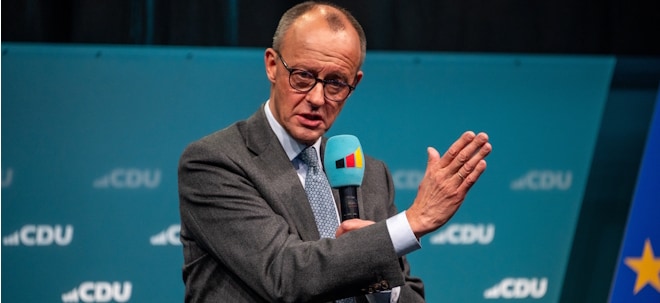Turning CO₂ into essential materials: US scientists Neeka and Leila Mashouf are in top 10 innovators of the Young Inventors Prize 2025
- Neeka and Leila Mashouf developed a process that converts CO₂ emissions into cellulose
- The enzymatic process mimics how trees absorb CO₂, creating biodegradable fibres for essential materials
- The Mashouf twin sisters are among the top ten innovators of the Young Inventors Prize to be awarded by the European Patent Office (EPO) on 18 June 2025
MUNICH, May 6, 2025 /PRNewswire/ -- The global textile industry is one of the most environmentally damaging supply chains, contributing up to 8% of global CO₂ emissions, according to the United Nations Environment Programme (UNEP). The textile value chain alone is projected to generate 2.7 billion tons of CO₂ annually by 2030, equivalent to emissions from nearly 230 million passenger vehicles per year.US scientists Neeka and Leila Mashouf(28) co-founded Rubi, a startup focusing on manufacturing with technology that transforms waste carbon into essential materials, including textiles. Their breakthrough has earned them a place as one of ten global innovators, in the Young Inventors Prize known as Tomorrow Shapers, 2025. They have been selected from 450 candidates by an independent jury.
A low-carbon alternative to industrial production
Traditional carbon conversion can require chemical-based or fermentation-based systems, which are energy and resource intensive, costly and require highly specialised equipment and processes. Rubi's enzymatic system is inspired by how trees absorb CO₂ to grow. It operates in a basic chemical reactor, eliminating the need for continuous fermentation and enabling a scalable, adaptable process where enzymes convert it into cellulose. This can then be refined into biodegradable fibres and yarns, seamlessly integrating with existing manufacturing processes to produce textiles and other essential materials.
The Mashouf sisters' invention offers a low-carbon alternative to conventional production, designed to support manufacturers whose current processes are incompatible with the urgent need to decarbonise supply chains. Rubi's process requires 10 times less energy than thermochemical methods, according to the Mashouf sisters, conserving water, land, and forests while transforming waste emissions into textiles. The company is already piloting its CO₂-derived materials with Walmart, Patagonia and H&M.
A shared vision for sustainable innovation
Raised in an entrepreneurial and science-driven family, Neeka and Leila Mashouf launched their scientific careers at just 15 years old, publishing research on artificial photosynthesis and conducting bioengineering work on cancer therapeutics. This early start marked the beginning of a decade-long path of scientific exploration and innovation aimed at improving human prosperity while preserving the planet, with Neeka becoming an expert in materials science and business and Leila a Harvard-trained doctor focused on advanced enzymatic pathways. In 2021, they combined their expertise to tackle one of industry's greatest challenges—transforming manufacturing to work in harmony with nature rather than against it.
"Rubi is creating a new paradigm where manufacturing can thrive while preserving natural resources and advancing climate goals," explains Leila Mashouf.
Impact beyond fashion
The Mashouf sisters' technology has the potential to transform industries beyond textiles, including packaging, pharmaceuticals, biomaterials, cosmetics, building materials, chemicals, and food applications. By licensing its process to manufacturers, the company aims to accelerate adoption and drive large-scale impact.
"Building Rubi has felt like a lifetime in the making, inspired by our backgrounds in science and entrepreneurship. We've proven that CO₂ can be a valuable resource rather than a harmful waste product. I'm honoured to work together with my sister as we pioneer the next era of abundance with reinvented manufacturing systems," adds Neeka Mashouf.
The Young Inventors Prize celebrates worldwide innovators 30 and under using technology to address global challenges posed by the United Nations Sustainable Development Goals (SDGs). By turning waste carbon into a valuable resource, the Mashouf sisters are directly contributing to UN SDG 9 (Industry, Innovation & Infrastructure), SDG 11 (Sustainable Cities & Communities), SDG 12 (Responsible Consumption & Production), and SDG 13 (Climate Action).
The prizes of the 2025 edition will be announced during a ceremony livestreamed from Iceland on 18 June 2025.
Find more information about the invention's impact, the technology and the inventors' story here.
About the Young Inventors Prize
Aimed at individuals 30 and under, the Young Inventors Prize showcases the transformative power of youth-driven solutions and recognises the remarkable young people paving the way to a more sustainable future. Established in 2022, trophies were first handed out during the European Inventor Award ceremony. From 2025 onwards, the Prize will move up a gear with its own dedicated event, held separately from the Award. Among the 10 Tomorrow Shapers selected for each edition, three will be awarded a special prize: World Builders, Community Healers, and Nature Guardians. In addition, a People's Choice winner, voted by the public online, will be revealed. Each Tomorrow Shaper will receive EUR 5 000, the three special prize winners will each receive an extra EUR 15 000. The People's Choice winner will be awarded an additional EUR 5 000. Read more on the Young Inventors Prize eligibility and selection criteria.
About the EPO
With 6,300 staff members, the European Patent Office (EPO) is one of the largest public service institutions in Europe. Headquartered in Munich with offices in Berlin, Brussels, The Hague and Vienna, the EPO was founded with the aim of strengthening co-operation on patents in Europe. Through the EPO's centralised patent granting procedure, inventors are able to obtain high-quality patent protection in up to 46 countries, covering a market of some 700 million people. The EPO is also the world's leading authority in patent information and patent searching.
![]() View original content:https://www.prnewswire.com/news-releases/turning-co-into-essential-materials-us-scientists-neeka-and-leila-mashouf-are-in-top-10-innovators-of-the-young-inventors-prize-2025-302447158.html
View original content:https://www.prnewswire.com/news-releases/turning-co-into-essential-materials-us-scientists-neeka-and-leila-mashouf-are-in-top-10-innovators-of-the-young-inventors-prize-2025-302447158.html
SOURCE European Patent Office (EPO)

